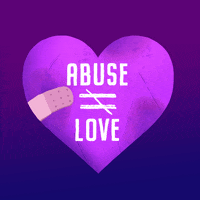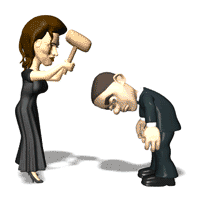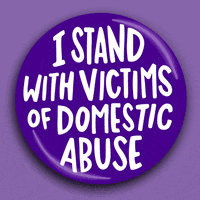Men Who Love Too Much
We are all familiar with stories of women who are victims of abuse from their husbands. We’ve read the headlines where the offending spouse is arrested and imprisoned for what they have done to their wives.
However, how often do you see stories of men abused by their domestic partners? Men are just as able to form dissociative identity disorder as women but are often overlooked in research and treatment.
This article will focus on abused men and ways you can help yourself if you are one.
Complex Trauma

Complex trauma occurs when someone is abused in various manners, such as human trafficking, yelling, and beating. Other forms of abuse include:
- Sexual abuse/incest
- Ongoing physical and emotional abuse
- Medical abuse
- Medical trauma
- Chronic neglect or abandonment
- Torture
- Parentification
- Being a refugee/exposed to long-term conflict such as war.
Complex trauma doesn’t form from a single event but from exposure to a series of these traumatic experiences.
When we speak of complex trauma, we often automatically think of child abuse. However, adults in abusive relationships with their intimate life partners can also become victims of complex trauma that can go on for months or even years.
Complex post-traumatic stress disorder (CPTSD) is a mental health disorder caused by exposure to complex trauma, and it has a myriad of different symptoms, including:
- Flashbacks
- Memory problems
- Having a distorted sense of self
- Express an inability to control emotions
- Being easily startled
- Hyperarousal
- Unexplained stomach or bowel issues
- Sleep disturbances
- Living in an unsafe interpersonal relationship
- Substance abuse
- Having low self-esteem
- Nightmares
- Experiencing depersonalization or derealization
- Thoughts or actions of suicide
- Unexplained headaches
- Having an autoimmune condition
Complex post-traumatic stress disorder is a severe condition that affects millions of people in the United States.
Women are Not the Only Victims

It is too easy to think that women are the only victims of domestic abuse (which is complex trauma). We’d instead think of male abusers, but men can also be victims of the worst type of physical and emotional abuse.
Men suffer in silence with what is happening to them. Society expects them to be the leader of their home, so when domestic violence occurs, they hide their wounds and scars. Quietly, men suffer in silence, which means many never approach the authorities or get the help they need and deserve.
You might have heard that one in four women are victims of domestic abuse. However, did you know that one in six men also are victims? Of the domestic abuse crimes recorded by police in the United States, 25% were reports of domestic violence perpetrated against men.
Far too many men experience physical or mental abuse, and we must do something to change the statistics.
What is Physical and Mental Abuse?

Before we can speak about treatments for complex trauma, it is critical to understand what consists of physical and mental abuse of adults.
Physical Abuse. This type of abuse is intentionally being harmed by another adult and includes slapping, choking, shoving, pinching, kicking, and any other action that causes discomfort or harm. Physically restraining significant others in physical restraints is also a form of physical abuse.
Emotional Abuse. When a significant other behaves in a manner that makes you feel bad about yourself, such as name-calling or making mean comments about your looks or intelligence. Men who love too much have often chosen to marry someone who looked great at the outset but soon exhibited narcissistic behaviors.
If you think these men should simply leave their abusive intimate partner, think again. Many men become so caught up in their fear of abandonment and shame they become frozen. With a destroyed sense of self and self-esteem, many men believe they will never find love again, so they fall victim to their narcissistic partner.
The Sure Cure for Domestic Violence?

The best and most critical thing for someone caught up in an abusive relationship is for the victim to leave and break off all contact with the abuser. While that sounds good, it is much more complex than it seems.
Many men in this position find it impossible for them to leave as children and other concerns are involved. Children are also victims in a domestically violent relationship, having watched helplessly while one parent beat up or bullied the other parent.
It is too easy to tell these men to just “buck up” and do what they must, but one must remember they are beaten down and codependent with another highly abusive person.
There is no easy or instant answer to defeat the stigma against male victims of domestic abuse. For a man to risk seeking help is to invite ridicule and stigma that is quite harmful to an already bruised and beaten psyche.
However, we must stop fooling ourselves into believing that women are the only victims of domestic abuse. Men are very much affected by partners who are abusive and need our help to defeat their fear of getting the help they need.
Treatments for Complex Trauma Male Survivors

It is vital to remember that male survivors of domestic abuse aren’t weak or stay in a relationship because they want to often; there are mitigating circumstances, such as the presence of children in the relationship.
There are treatments to help men heal from these harmful relationships, but stigma against men often blocks men from seeking help.
However, those who grow aware that they are not the instigators but the victims of intimate partner abuse will look for help; this article is only one vehicle to finding it.
Treatments to address complex trauma are in the following paragraphs.
Trauma-focused cognitive behavioral therapy (CBT). This form of therapy is a treatment that aids people who have experienced complex trauma in finding methods to manage harmful behavior and emotions. CBT also changes how people think about their traumatic experiences and identifies false beliefs one might have, such as “she/he loves me” when the client is a victim of domestic abuse.
Eye movement desensitization and reprocessing (EMDR). This form of psychotherapy uses eye movements with guided instructions to aid patients in processing their memories of trauma. EMDR is meant to help people explore memories of emotional and mental injury. EMDR has an eight-phase process:
- History taking and treatment planning
- Preparation
- Assessment
- Desensitization
- Installation
- Body scan
- Closure
- Reevaluation of how effective the treatment has been.
While EMDR helps many people, it can be harmful without a trained EMDR practitioner.
Expressive arts therapy. Expressive arts therapy, a type of psychotherapy, uses several methods to help people with their personal growth. This treatment option combines psychology and the creative arts to promote healing and growth. Some expressive arts therapy methods include:
- Music
- Drama
- Dance
- Writing
- Painting
- Drawing
- Sculptures
- Role-play
- Poetry
Expressive arts therapy is effective for those who have problems with traditional psychotherapeutic methods.
All these treatments help victims of complex trauma learn why they remain in their relationships with abusive partners and how they can leave them.
Substance abuse treatment. Treatment is also needed for any underlying abuse of drugs of any kind and alcohol. It is quite understandable why someone in the position of these men would turn to substances to numb their pain, but the problem is still there when they sober up.
Ending Our Time Together

I realize this piece is difficult to read as it talks about men in pain. However, we must bring these men out of the darkness of abuse and into the light of our collective consciousness.
It is time to have a day of remembrance, complete with banners and ads telling our communities about men living with domestic violence that live all around them, but they do not know about it.
I have experienced domestic violence and can say firsthand it is hard to break away from those who hurt you. Somehow, you feel so loyal to that person that you don’t want to leave. I can honestly say that I wasn’t ready to leave my situation until I had a stroke at age 39 and had time away from my situation at home. Only when I was away did I realize I needed to leave.
Men have it more challenging than I did when it comes to leaving. They feel obligated to their abusive partner and fear leaving for many reasons. Society backs up its self-defeating thinking about staying no matter what by treating men as stoic, unemotional creatures.
It is critical to remember that men are people first and deserve always to be treated with dignity and respect.
I’ve included some resources below to aid you if you want to read more about the domestic abuse of men or need help.
Websites:
https://menhealing.org/directories-page-resources/listing/abuse-hurts/
The National Domestic Hotline
Live chat is available at the above URL
Call: 1-800-799-7233 (SAFE)
TYY: 1-800-787-3224
Text: 88788
National Suicide and Crisis Hotline (US only)
988 – suicide prevention hotline
911 – calls for help to get law enforcement or an ambulance.
“The biased use of pronouns serves to perpetuate the culturally based myth that men are perpetrators and women are victims. This myth is extremely damaging to the millions of male victims of sexual and physical abuse who live unacknowledged by our society.” – David Lisak.
“…there is a particular focus of the problem faced only by men. It arises from our culture providing no room for a man as victim.” – Mike Lew.